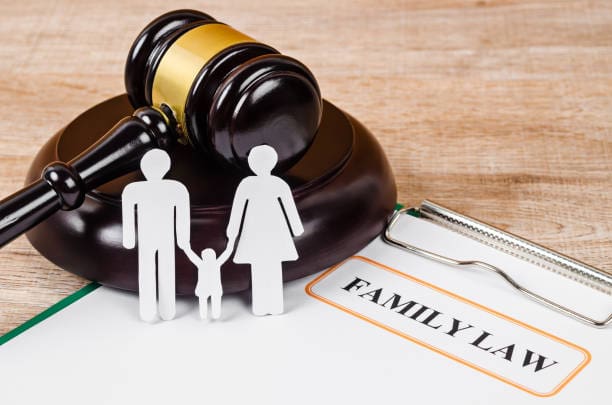Some people may commit contravention without excuse in family law matters. Parenting orders are susceptible to contravention from parties involved in the order even though they are legally enforced. However, there are provisions available for parties who breach these orders due to their legal enforceability. The following are the various categories of violations that the Court considers:
- One party claims the other violated an order but is unable to prove it.
- A violation has been established, but there is a reasonable explanation.
- There has been a less serious violation, but there is no reasonable explanation.
- There has been a serious violation, and there is no reasonable explanation.
Each person who is subject to an order must comply with court orders and take all reasonable steps to do so. This is true especially if there are children involved since parenting orders adhere to the child’s best interests. The child’s best interests are set out in Section 60CC of the Family Law Act 1975. Read on to know more about provisions regarding contravention without excuse below.
Contravention of Parenting Orders: Common Instances
1. Failure To Deliver Parental Responsibility
Parental responsibility is a type of responsibility that enables a person to make long-term decisions for a child. This is usually given to both parents equally (equal shared parental responsibility) since it is in the child’s best interests. Let’s use an example. For instance, the family court ordered equal shared parental responsibility for Martha and Keith after their divorce.
This requires Martha and Keith to reach an agreement before making long-term decisions for their child. If Martha solely decides to have their child baptised under the Catholic faith, then she has contravened the court order. Deciding on a child’s religion is classified as a long-term decision.
2. Child Changeover Issues
Let’s use Martha and Keith again as examples to understand court order contravention without excuse. Aside from the equal shared parental responsibility they received from the court, they also received a parenting order regarding child changeovers. Martha is to have time with her child from Monday (8 am) to Wednesday (4:30 pm). Therefore, she should give the child to Keith before Wednesday at 4:30 pm.
Martha contravenes the order if she fails to adhere to the changeover schedule. Let’s use another instance if grandparents are involved. For instance, Martha’s grandparents are supposed to get the child on Sunday at 8 am. The grandparents will contravene the parenting order if they get the child on Saturday at 10 pm. As a result of the contravention, the time the child spends with Keith will be negatively impacted.
Section 70NFA: Application of Subdivision
The Family Law Act provides provisions regarding contravention without excuse. According to Section 70NFA of the Act, Subdivision 13A applies if:
- A primary order has been made before or after the commencement of Division 13A
- A court having jurisdiction under this Act is satisfied that a person has committed a contravention of the primary family court order.
- The contravening person does not provide proof that he/she had a reasonable excuse for the contravention
- No court has previously made an order imposing a sanction or taking an action with respect to the person who contravened the primary family court order.
- No court has adjourned proceedings with respect to the person who contravened the primary family court order.
- The court is satisfied that the person committed contravention without excuse and has shown a serious disregard for his/her obligations under the court order.
- A court has previously made an order imposing the sanction with respect to the contravening person of the primary order.
- A court has previously made an order that adjourned proceedings with respect to the person who contravened the primary family court order.
- The primary order was issued and the current violation occurred before or after the start of this Division.
Note: Subdivision 13A does not apply if the court dealing with the current contravention determines that it is more appropriate to deal with that contravention under Subdivision E.

Section 70NFB: Powers of Court
According to Section 70NFB, in relation to the contravening person, the court must make orders that are in the best interests of the child. These orders may include:
- Community service orders. The court may, under appropriate circumstances, vary or discharge this order.
- Orders requiring the person who committed contravention without excuse to enter into a bond
- A further parenting order that compensates the parent’s lost time with the child due to the contravention. However, the court will make sure that the new parenting order is still in the child’s best interests.
- Impose a fine on the contravening person that does not exceed 60 penalty units.
- Imprison the contravening person.
- Order the person who committed contravention without excuse to pay some or all of the other party’s legal costs in court proceedings.
The court may not proceed with the imprisonment option with respect to contravention of child maintenance orders unless the contravention was intentional or fraudulent. Furthermore, the court must not impose an imprisonment sentence in respect of the following:
- Contravention of an administrative assessment of child support made under the Child Support Assessment Act 1989.
- A breach of a child support agreement under the Child Support Assessment Act
- A contravention of a court order under Division 4, Part 7 of the Child Support Assessment Act.
An order issued under this section may be stated to take effect immediately, at the end of a specified period, or upon the occurrence of a specified event. When a court issues an order under this section, it may issue any other orders it deems necessary to ensure compliance with the order that was contravened.
Contravention Without Excuse: Seeking Legal Advice
It’s important to seek legal advice about family law matters especially if there are court orders involved. Usually, divorce or separation proceedings end quickly if there are no children involved. However, the courts will take steps to make court orders if there are children involved. This will typically require utmost cooperation from the children’s parents since the court follows the child’s best interests.
JB Solicitors is an experienced family law firm that has handled family law matters in Australia. Our team only provides expert legal advice for disputed parties in order to come up with amicable resolutions.
Our mediation and arbitration services can help with resolving complex family law disputes like divorce, property settlement, and people who committed contravention without excuse.
Message a seasoned lawyer today if you have legal matters regarding contravention of court orders.
